This story is published in partnership with Ozarks Alive, a cultural preservation project led by Kaitlyn McConnell.

WENTWORTH — The piece of white paper taped on the old wood-and-glass door says “Stephens’ Corner,” but it tells a lot more than the two handwritten words in black marker remind.
They proclaim the next chapter — for a store, for a family and for the community of Wentworth, which sprang out of the mining rush of the late 1800s.
Today, it’s a place where ghosts live in plain sight.
For generations, one of those now-crumbling remnants was Pelsue Mercantile. The Newton County landmark along Missouri 37, about an hour southwest of Springfield, sold a spectrum of general-store goods for about 130 years, dwindling to the likes of pop, Lotto and liquor.
By June 2022, it was also nearly out of oxygen.
On a hot summer afternoon, a crowd gathered to learn its fate as it went up for auction. Even the colonel’s rolling chant couldn’t drown out the threat of coffin nails being driven into the town’s longtime landmark.
But when he declared “sold!” it proved not all were resigned to a future where the store’s memories were sold with its crumbling stucco.
As I open the longtime store’s door, I see Donna Stephens Weiss and Monna Stephens Roberson — twin sisters, born eight minutes apart — who unexpectedly decided to help the landmark live on.
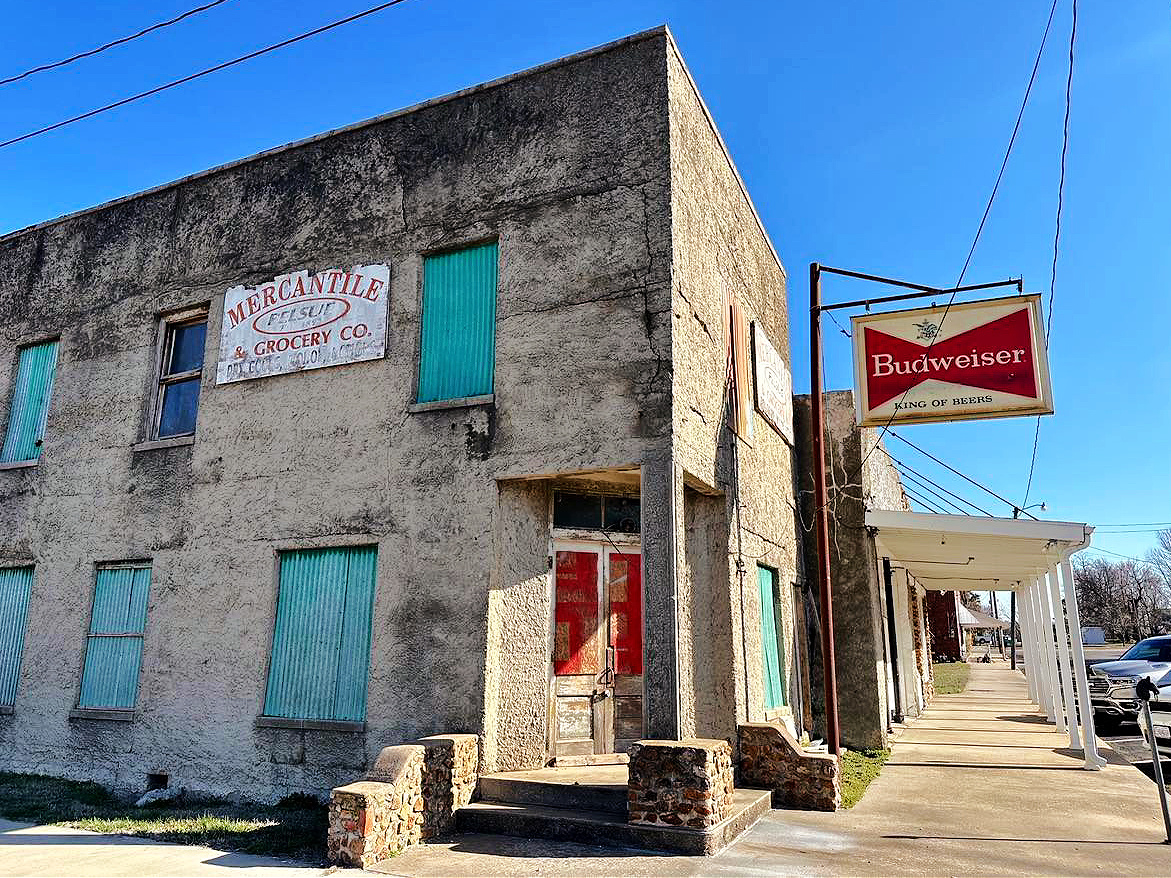
The store looks completely different from the last time I walked within its walls on the day of the auction. Back then, you could barely move through the store: people clogged the narrow paths that wove through the store’s time-capsule-like merchandise.
There were Big Smith overalls, saddle shoes and vintage women’s clothing items. Old but never-sold cans of Nehi Strawberry and RC Cola remained on wire shelves. A museum-ready precursor to Google, a 1955 phone directory for Joplin-Webb City, hung by a string on the wall.
It was impossible to notice all that was there, but you could see enough to be impressed — and overwhelmed.
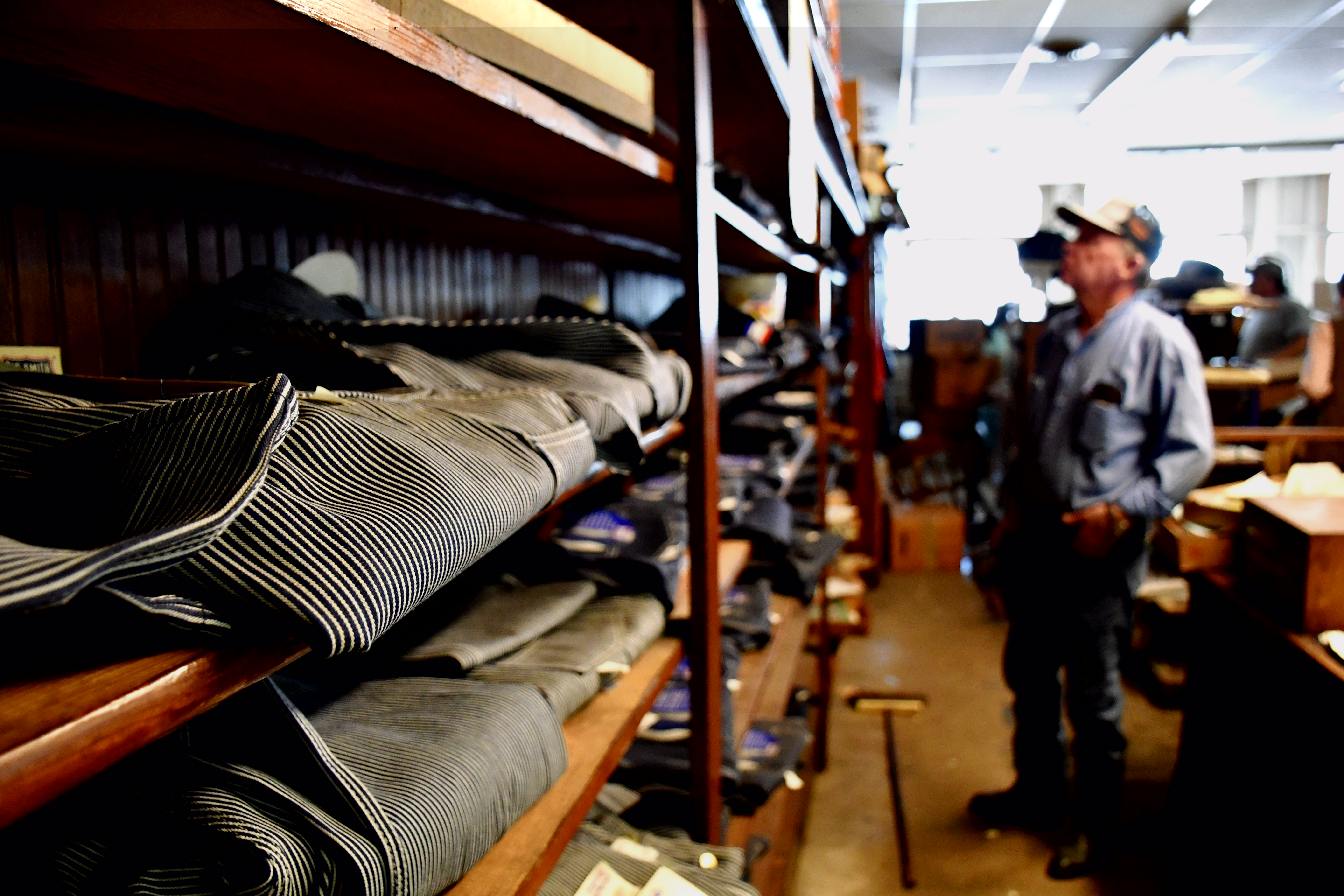
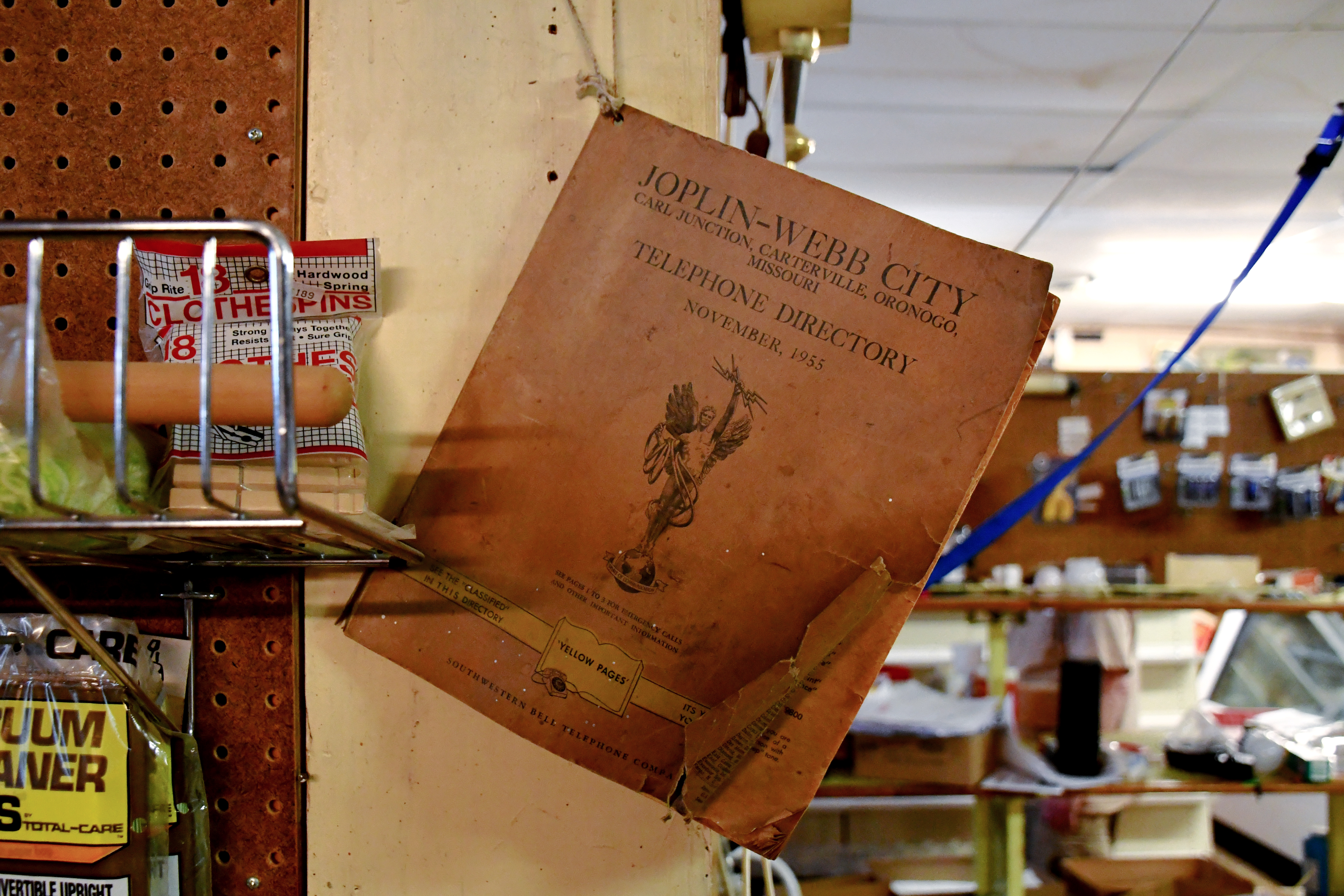
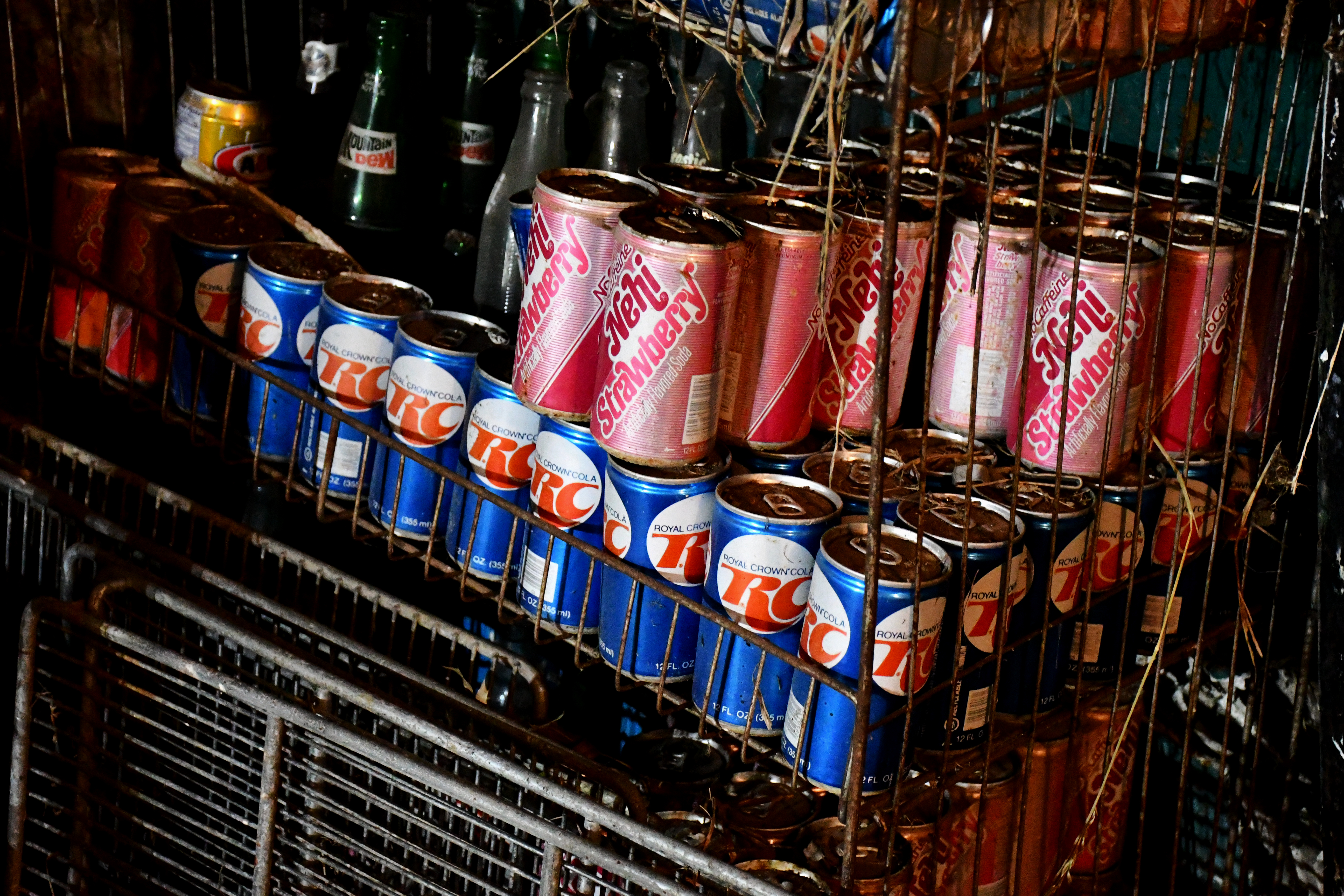
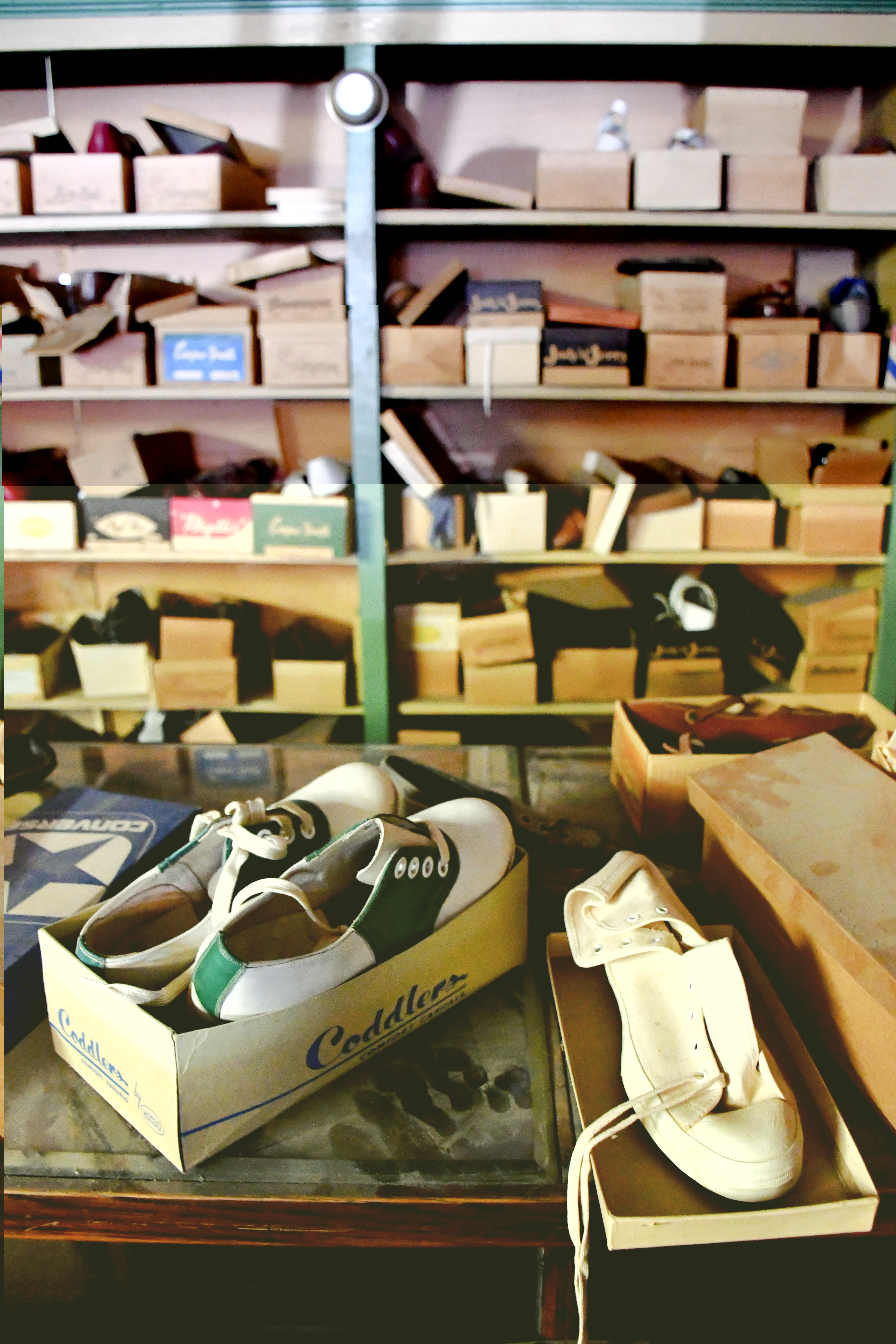
The Stephens sisters were well aware of the auction. Even though they didn’t grow up in Wentworth, they spent significant amounts of time in the area, and their grandmother worked in the store.
Another person deeply connected to the area and attuned to the store’s future was their father, Clyde Stephens. While a military career took him and his family across the country, his roots were in Wentworth and he ultimately served as mayor of the village for more than 40 years.
“He got sick and this thing went up for auction,” Weiss said. “It worried him to death what would happen to it.”
Father died days before the auction
Little remains to remind of Wentworth’s heyday. Despite that concern, or perhaps because of it, he planned to attend the auction and see its fate firsthand.
Sadly, he did not make it to the auction. He unexpectedly died just days prior.
But his family did — and they bought the store and its contents. Even though they didn’t have a plan at the time, excitement bubbled up when the landmark became part of the Stephens’ history in a new way.
“Daddy died Friday and we bought this on Thursday,” Weiss said. “Wasn’t even a week after Dad died. That’s why we bought it. People ask, ‘Why did you buy it?’ and I say, ‘I’m going to preserve it first, and then we’ll see where it goes from there.’
“I never expected to own this. Out of emotion, we bought it. We’re like, ‘Why?’ People still ask us today why are we doing this. And I think, ‘It’s the only building besides one still standing in this little mining camp. And I didn’t want to see it (disappear).’”
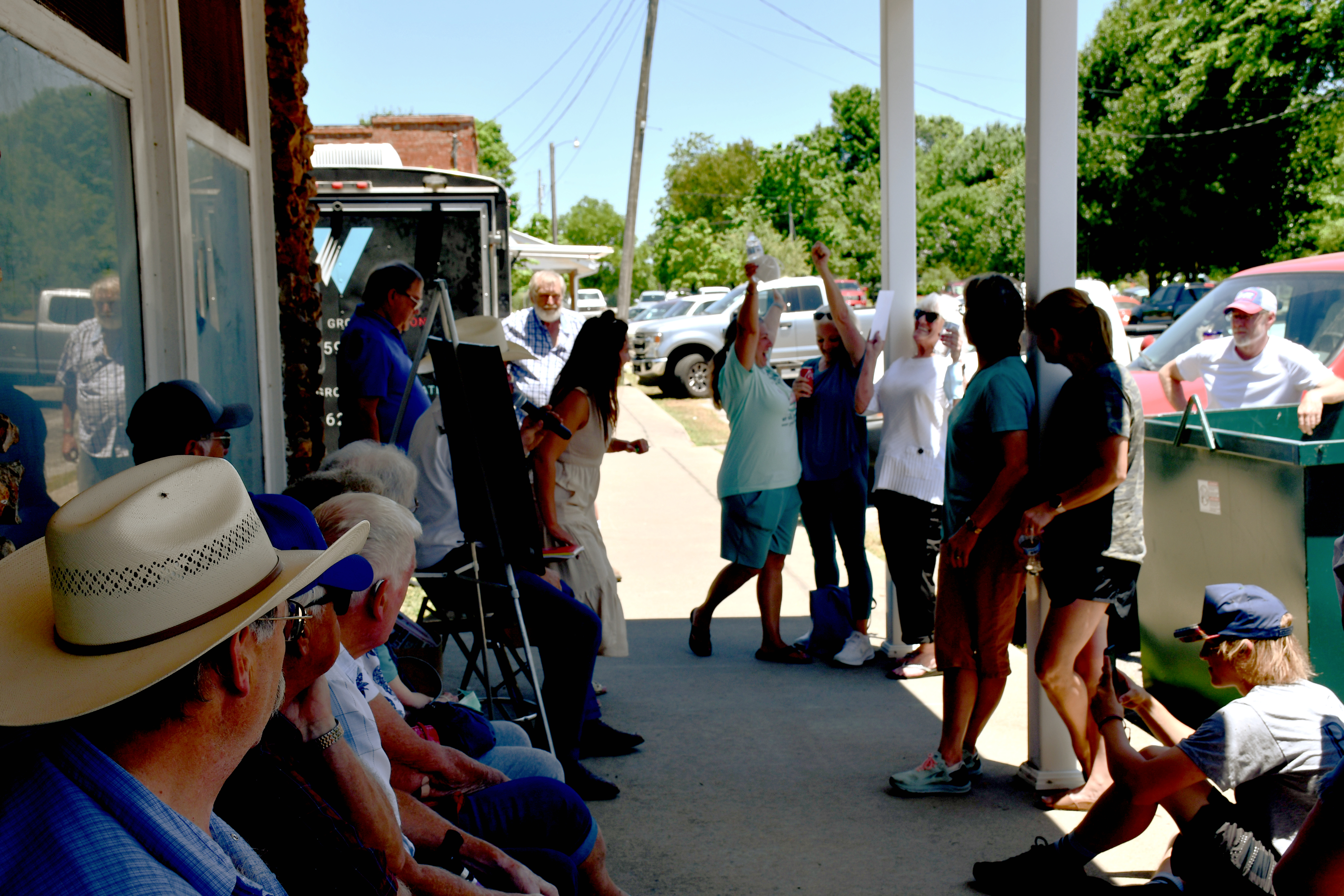
It’s been about 10 months since the sale, time which has largely been spent in cleaning out and shoring up (and installing a new bathroom). Both sisters had some experience related to construction, which has helped as they navigate the work.
The sisters show me through the property, which consists of three storefronts. Two were the main store area, while one end was formerly used as a hotel, saloon and in more recent years was used as storage.
Town traces history to mining industry
“This building was constructed out of the tailings of the mining industry here,” Weiss said of leftover products from local mines. “In 1913, there … were like nine mines here in town. This was a mining camp before it became a village. They literally took the tailings and made prefab cast concrete blocks and built this.”
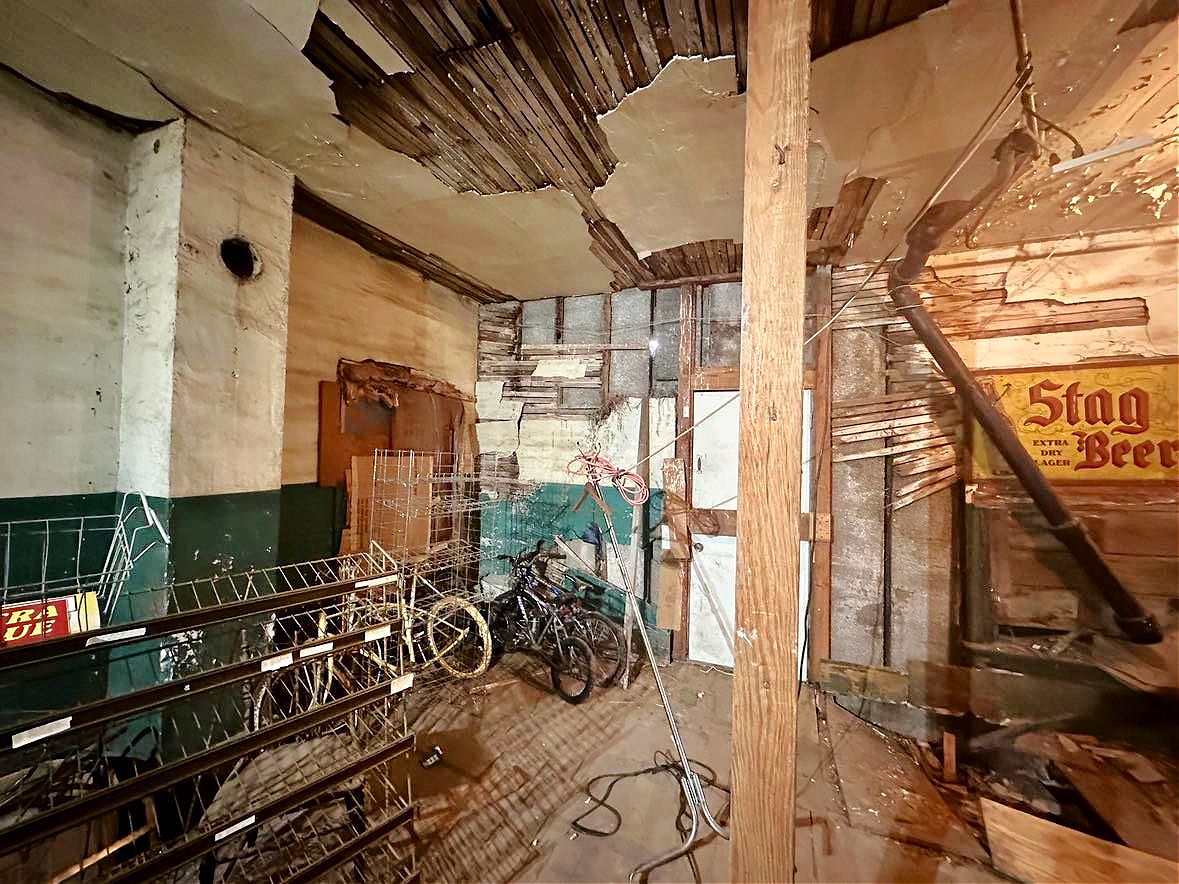
Even though similar types of construction are used today, Weiss says, neglect in upkeep on the Wentworth building made its supports on that section deteriorate. Instability also makes it unsafe to walk upstairs. The bottom line: that part of the property has been found to be unsalvageable. In the coming months, it will be torn down, leaving the other two storefronts.
“As this building is pulling this way, it’s pulling everything out,” Weiss said. “This building is not salvageable in any way.”
The sisters plan to repurpose as much of the building as possible. Yet for the moment, a step into the space still reminds of history as it once was. While the top floor was once a hotel (among other uses), downstairs was a saloon and pool hall where the original bar, knob-and-tube writing and a backbar that the sisters’ great-grandfather built remain.
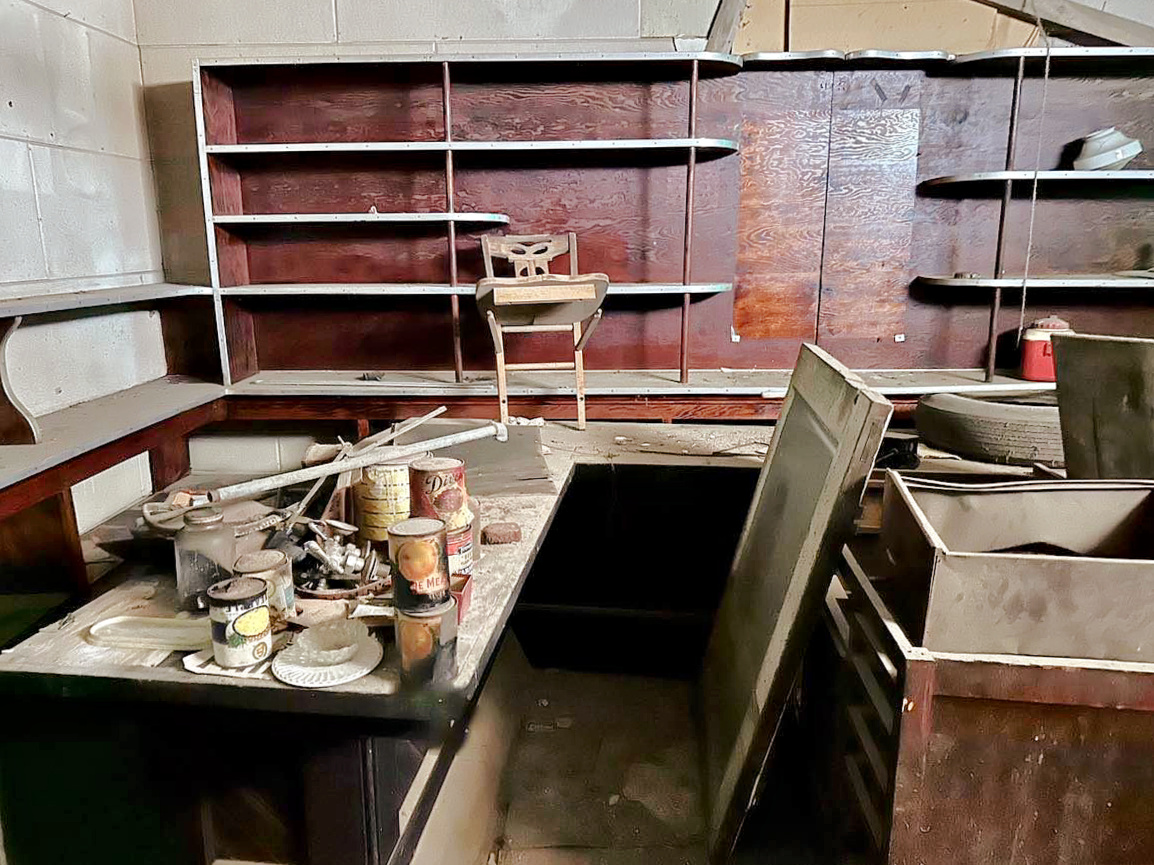
There were also many things that needed to be disposed of, such as old newspapers, trash and expired products.
“Here are some of the old metal racks that they used,” Roberson points out. “There were soft drinks and canned goods in here that had disintegrated and they were empty. Never ever been opened, but they were empty. Isn't that weird?”
But getting rid of trash left room for treasures to shine through. Remnants of the past include small roll-down blinds which covered the cabinets of liquor in days when it couldn’t be sold on Sundays. An old-fashioned glass case still holds small brown paper bags, all that remains from others clutched by young fingers eagerly enjoying penny candies. An old, broken safe still sits in back, adorned with signs of the times.
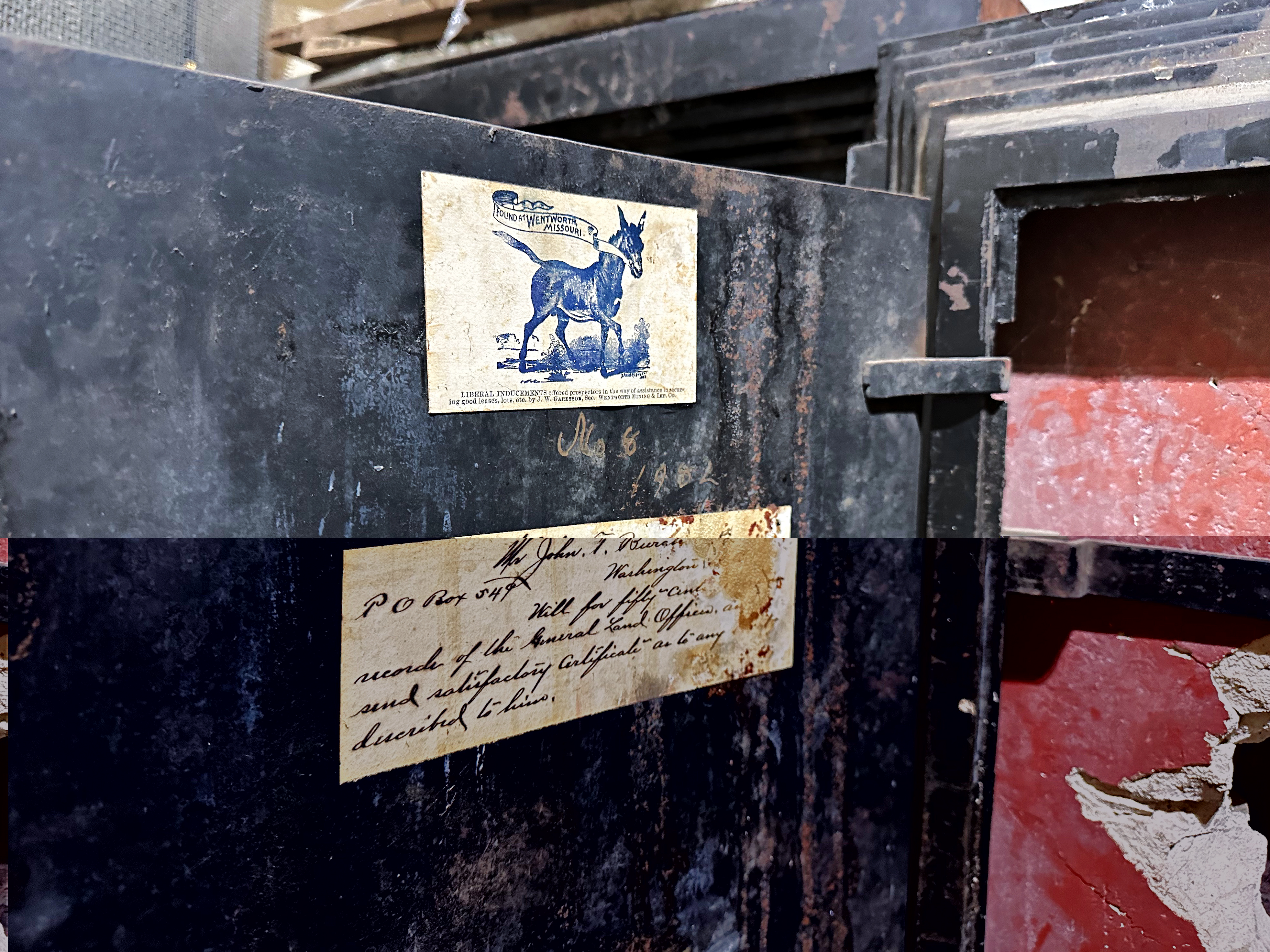
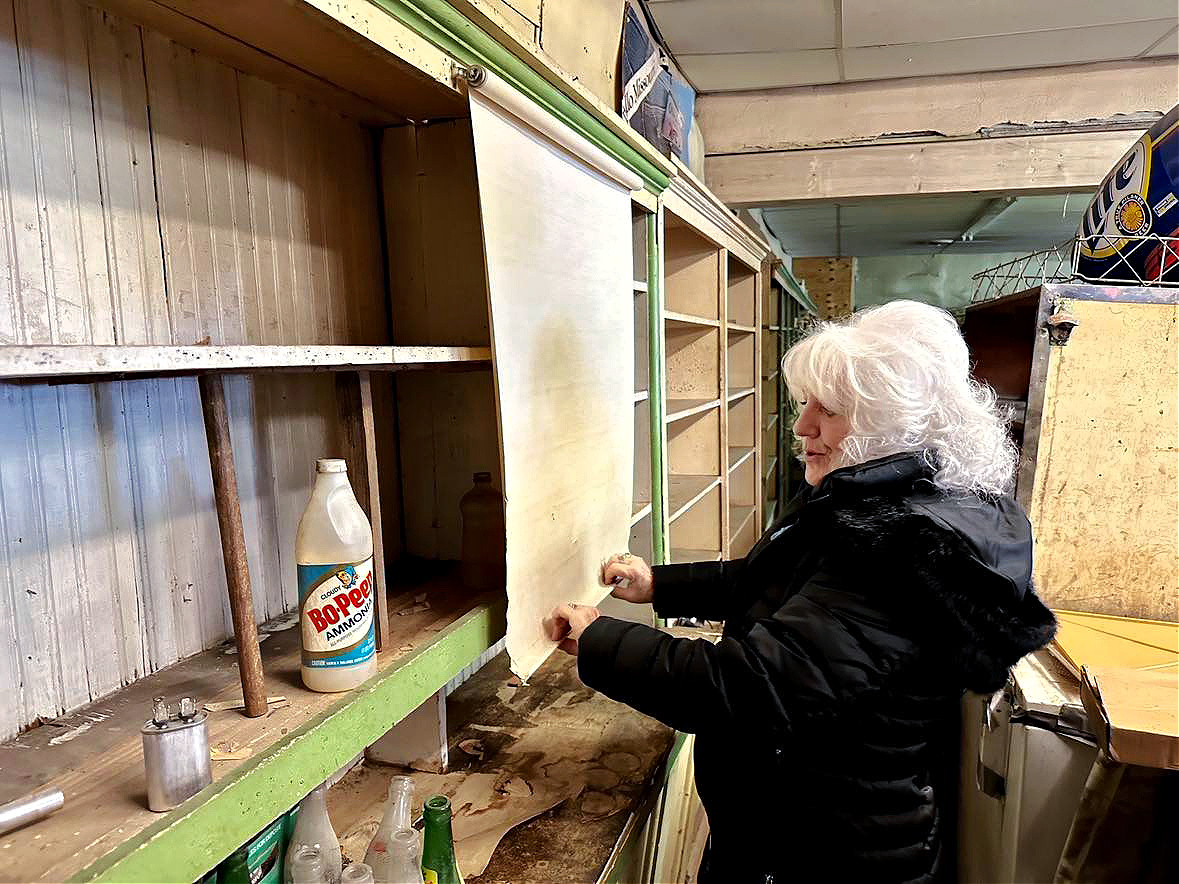
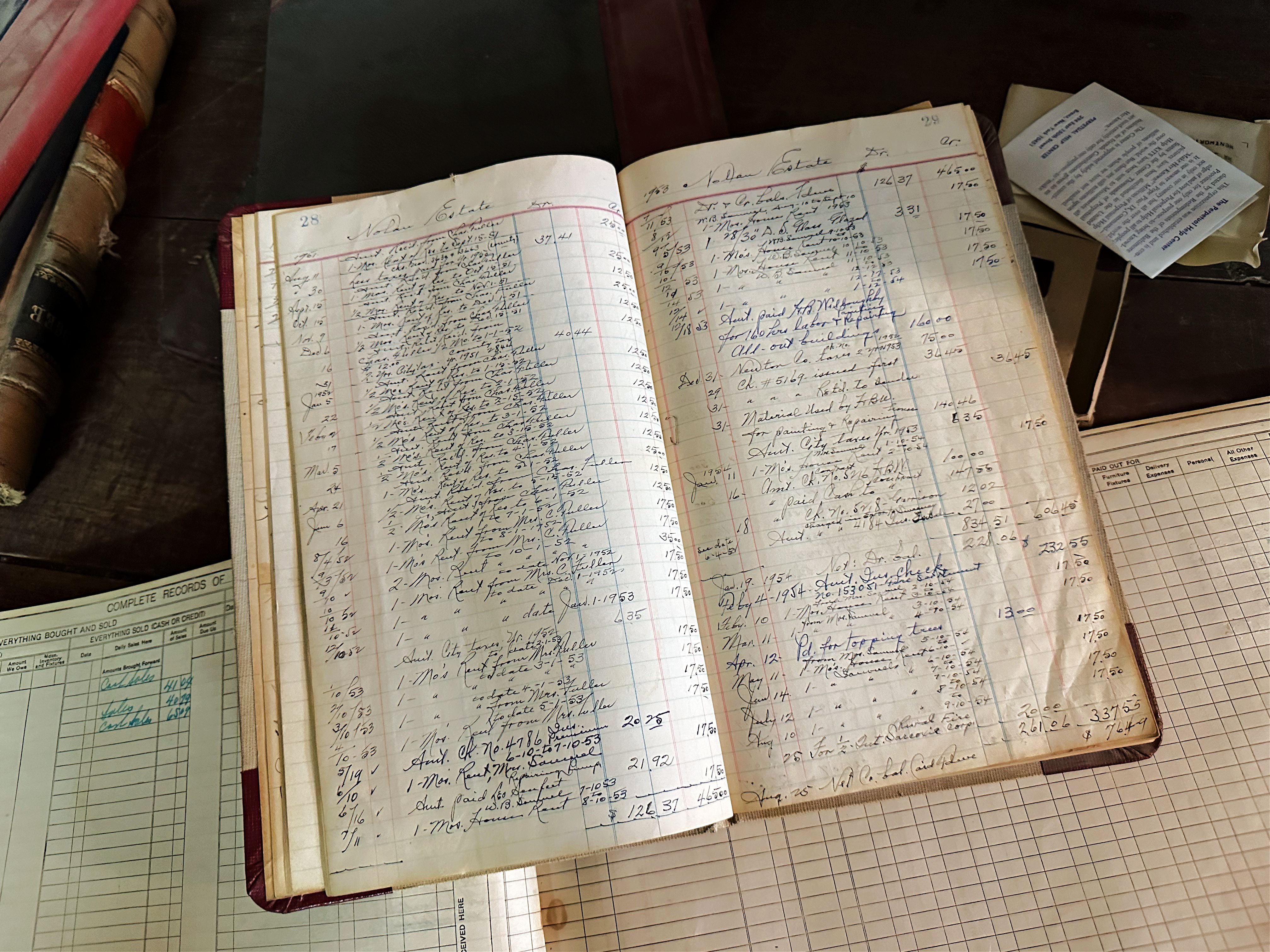
“There’s a lot of history here from the way things used to be,” said one of the sisters.
Those fingers that once held the paper bags point out bins still filled with beans, never cleaned out, and open a trunk in the back of the store. There, beneath pressed-tin ceiling tiles, is vintage clothing that hadn’t even been taken out of its shipping boxes.
Eventually, it’s the sisters’ plan to have another sale and allow the items to go to new homes.
Picture of store's future is evolving
I ask them if they have a clearer picture for the space. And there is, but it’s still evolving.
“Once the roof’s repaired, the ceiling’s done and it’s cleaned up so the health department will let someone be in here, I perceive opening this up for locals to bring homemade (products),” Weiss said, giving jellies and jams and homemade scarves as examples. “Letting the people of the Ozarks bring their stuff in here.”
In the meantime, something that has brought the sisters joy is a picture window. When I visited last week, it was themed for St. Patrick’s Day and filled with merchandise once sold at the store.
“We’re just pulling stuff out of the store,” Weiss said. “Basically we’re just having fun with finding stuff.”
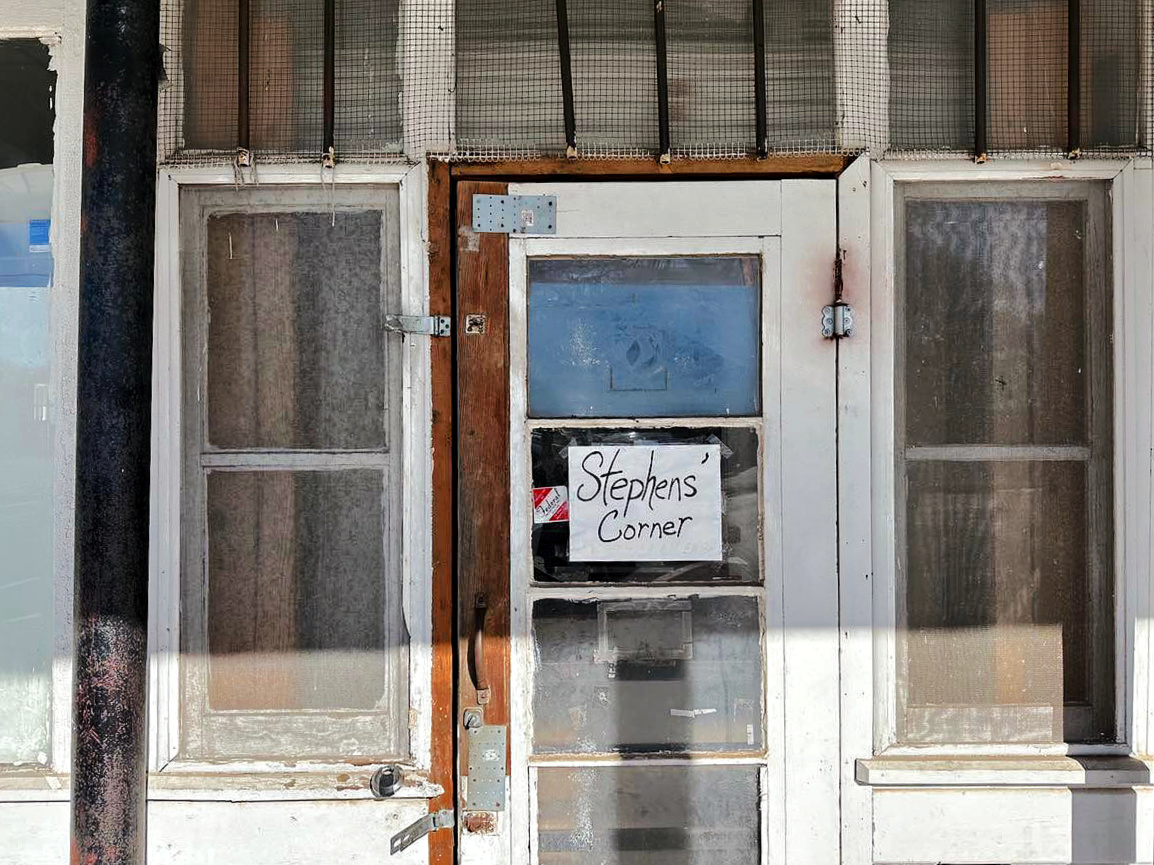
As seasons change, the sisters continue working to restore the memory a little at a time. They don’t have to do things in big chunks, as they’re not coming to Wentworth from across the country as they once did. Today, they live right down the street. They moved to town a few years ago, after both of their husbands died, to be closer to family.
And, as it turns out, to their future.
“Neither one of us ever saw us moving,” Roberson said. “But when my husband died two years ago in January and hers died three years ago in January, I said to my kids, ‘Mom and Dad aren't getting any younger, and I probably need to go live with my parents.’ I called Donna and I said, ‘What's your excuse?’
“Six months after I got here, Dad died. Then this opportunity came up and we thought, you know, ‘I'm here for a reason.’”
This story is the second in a series about the store. To read the first, click here, and stay tuned for future updates.

